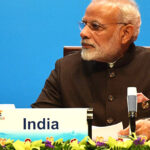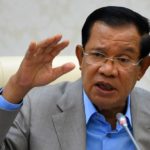
Cambodia’s economic growth remains under threat, as the European Union (EU) begins the process of removing the country from the Everything-But-Arms (EBA) scheme, and more recently the U.S. Generalized System of Preferences (GSP). The EU’s response to Cambodia stems from the government’s turn away from democratization that dates back prior to the 2018 general elections. Prime Minister Hun Sen’s Cambodia People’s Party (CPP) ran unopposed in an election that the international community deemed not “free and fair” by most standards. The major opposition party, the Cambodia National Rescue Party (CNRP) was dissolved by the country’s Supreme Court about nine months prior to the 2018 election. The CPP, as no surprise, swept all 125 parliamentary seats.
In February, the European Union began the 18-month process that could lead to the suspension of Cambodia’s tariff-free access to the European markets under the “Everything But Arms” scheme over repeated concerns about the CPP-led government’s record on human rights, labor standards, and erosion of democratic freedoms. Developing countries have near tariff-free access to EU markets, with the exception of arms and ammunition.

According to the World Bank, Cambodia’s textile industries comprise more than 39 percent of its total exports and employs more than 700,000 people. Exports to the European Union totaled more than $5.4 billion in 2018, with textiles and footwear composing more than one third of Cambodia’s total exports. A suspension in the EBA would increase EU tariffs in this vital sector by 12 percent and the footwear sector by as much as 16 percent, costing almost $700 million in additional taxes. Among the concerns faced by some is that the rise in tariffs could move investment out of Cambodia and into countries that still enjoy EBA benefits.
Cambodian Prime Minister Hun Sen announced, in preparation for a withdrawal of the EBA scheme, a number of preparatory measures to support manufacturers, such as the cutting of production and export costs. In reality, there is little the Government can do to offset the consequences of the EBA withdrawal, short of waiting for alternative markets via China to emerge. Earlier in May, Hun Sen returned home from China with a promise of Bejiing’s “clear willingness to help” Cambodia in the event that the EBA scheme is dissolved. If and when that happens could only be as early as August 2020 which could provide Phnom Penh some room for economic diversification.
Cambodia can turn Sri Lanka as an example of what could transpire. Because of its own human rights abuses stemming from the brutal civil war that ravaged the country, Sri Lanka lost preferential trade benefits to the EU. Being highly dependent on textile imports to the EU, more than 10,000 workers lost their jobs when the country was suspended from the EU’s GSP+ scheme (from 2010-2017), or about 4% of the sector’s workforce. However, textile exports kept growing, but less competitively than their competitors. Even the European Parliament is skeptical about the prospect that more than half of Cambodian workers would become unemployed.
But to make matters worse, U.S. Lawmakers recently introduced the Cambodia Trade Act (CTA), which, if passed by Congress, would require the U.S. Government to automatically review Cambodia’s trade status under the GSP. Currently, Cambodia exports about $180 million in tariff-free goods to the United States, which would be significantly reduced if suspended. The lawmakers criticized “serious labor and human rights violations, as well as actions to undermine the nation’s path toward democracy by attempts to abolish any political opposition or dissent.”
The conventional wisdom is that sanctions would put an extraordinary amount of pressure on Hun Sen to conform to international norms. Former members of the CNRP, including the daughter of imprisoned CNRP leader Kem Sokha have lobbied the international community to take action against the Government. Since the textile industry is so robust in Cambodia, garment sanctions by the EU could force labor strikes and internal political unrest in the Kingdom, which is something that Hun Sen likely fears. He places a considerable amount of his domestic/internal legitimacy upon his ability to bring back economic successes. Large-scale interference in the garment sector of the economy, analysts claim could force the government into adopting greater transparency.
The application of pressure, opposition leader Sam Rainsy has noted could “kill two birds with one stone” by triggering healthier economic reforms through more equitable governance. However, as many academics have noted, economic pressure does little to alter the tide of authoritarian rule in many countries. Economic sanctions often fail to induce authoritarian changes in policy, but are also sometimes contrary to the task of producing human rights and democratic changes in the country.
In fact, many regimes have become more repressive to opposition groups or political rivals in order to preserve their hold on political power. Conceding to international pressure could undermine their domestic legitimacy. Therefore, the EU gambit to force Hun Sen into compliance is risky. The CPP is completely entrenched in power. Political opposition in Cambodia is fractured and many former leaders are in exile. Mass mobilization could prove difficult and Hun Sen is likely to survive any political challenge to his 34-year-old rule.






